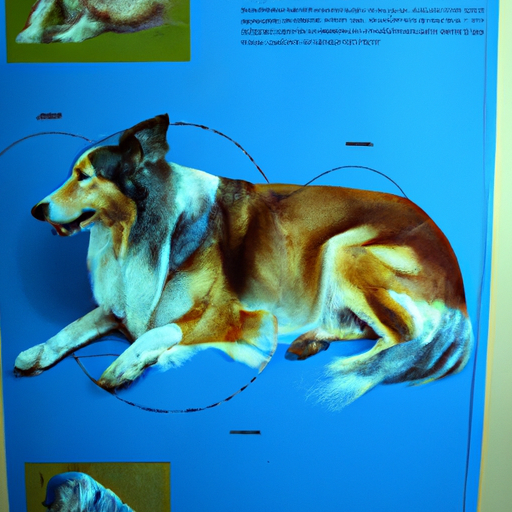As a loving caregiver to your pet, it’s crucial to understand the different types of seizures dogs can experience. Recognizing the signs can help you respond effectively and seek appropriate medical attention for your furry friend.
1. Generalized Seizures
Also known as grand mal seizures, generalized seizures affect both sides of your dog’s brain. They are the most commonly observed type of seizure in dogs.
Here’s what you can expect:
- Phase 1: Aura – Your dog may seem confused or anxious. You might notice unusual behavior like pacing, whining, or hiding.
- Phase 2: Ictal – Your dog loses consciousness and falls over. Their body may shake or convulse. This phase can last from a few seconds to several minutes.
- Phase 3: Postictal – Your dog regains consciousness but is uncoordinated, disoriented, and possibly temporarily blind. This stage can last from minutes to hours.
2. Focal Seizures
Focal seizures, or partial seizures, originate from a specific area in the brain and often result in abnormal behavior.
Here are some signs to look out for:
- Staring into space or at an object
- Fly biting (snapping at non-existent flies)
- Uncontrolled movement in one part of the body such as an ear or a leg
3. Psychomotor Seizures
Psychomotor seizures are a type of focal seizure that leads to a brief period of strange behavior, which lasts a few minutes.
Typical signs include:
- Aggression
- Fearful behavior
- Obsessive licking or chewing
4. Idiopathic Epilepsy
Idiopathic epilepsy is a condition where your dog experiences recurring seizures with no identifiable cause. It’s usually genetic and often seen in certain breeds.
| Breeds More Prone to Idiopathic Epilepsy |
|---|
| Beagles |
| Labrador Retrievers |
| Belgian Tervurens |
| Golden Retrievers |
| Keeshonds |
Frequently Asked Questions
Q1: What should I do if my dog has a seizure?
A: Remain calm. Keep your dog away from stairs or furniture to prevent injury. Do not put your hand in your dog’s mouth. Time the seizure and contact your vet immediately.
Q2: Can a dog recover from a seizure?
A: Yes, most dogs recover from a seizure. However, it’s important to consult with a vet for proper diagnosis and treatment.
Q3: Are seizures painful for dogs?
A: Dogs are unconscious during a generalized seizure, so they do not feel pain. However, they may feel confusion or distress before or after the seizure.
Q4: Can a dog live a normal life with seizures?
A: Yes, with proper medication and care, a dog with seizures can lead a normal life.
Remember, as a caregiver, your knowledge and timely action can make a significant difference in your pet’s health. Stay alert, stay informed.



